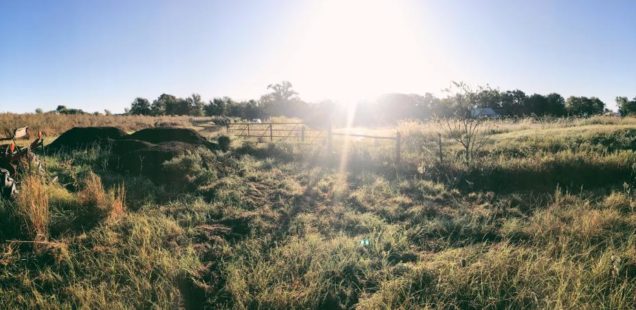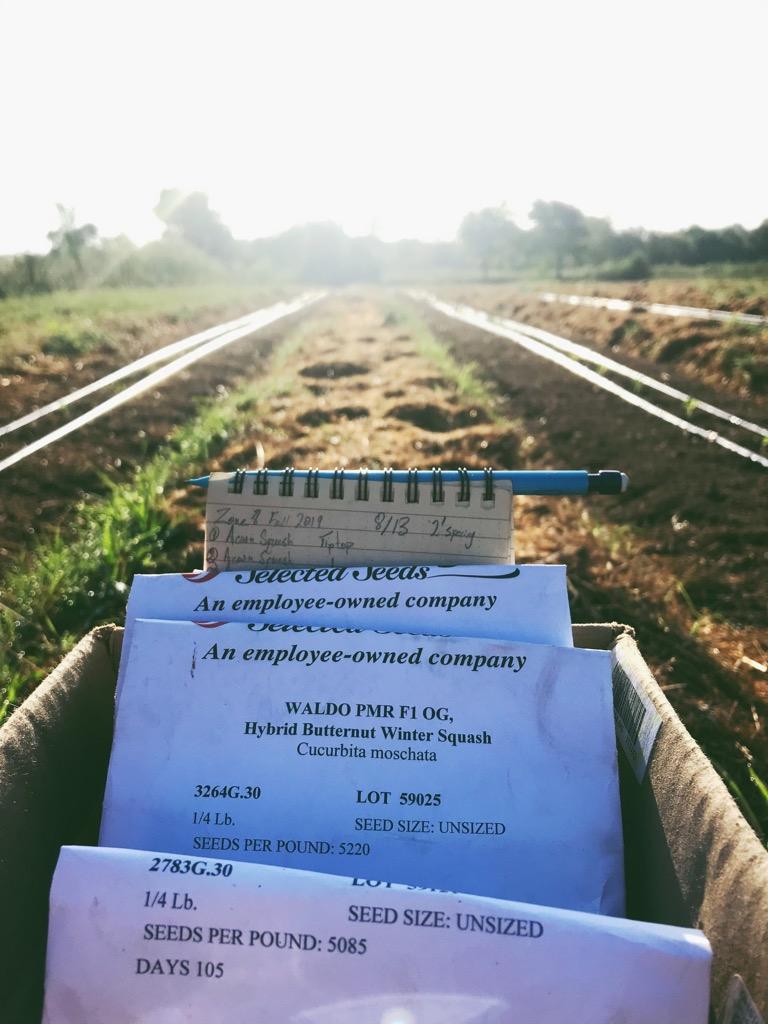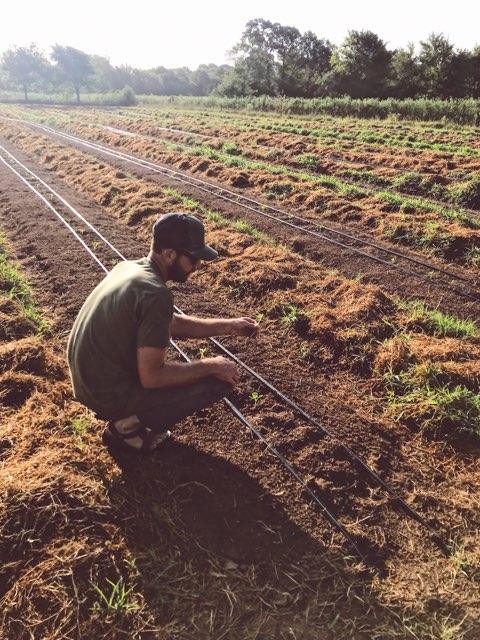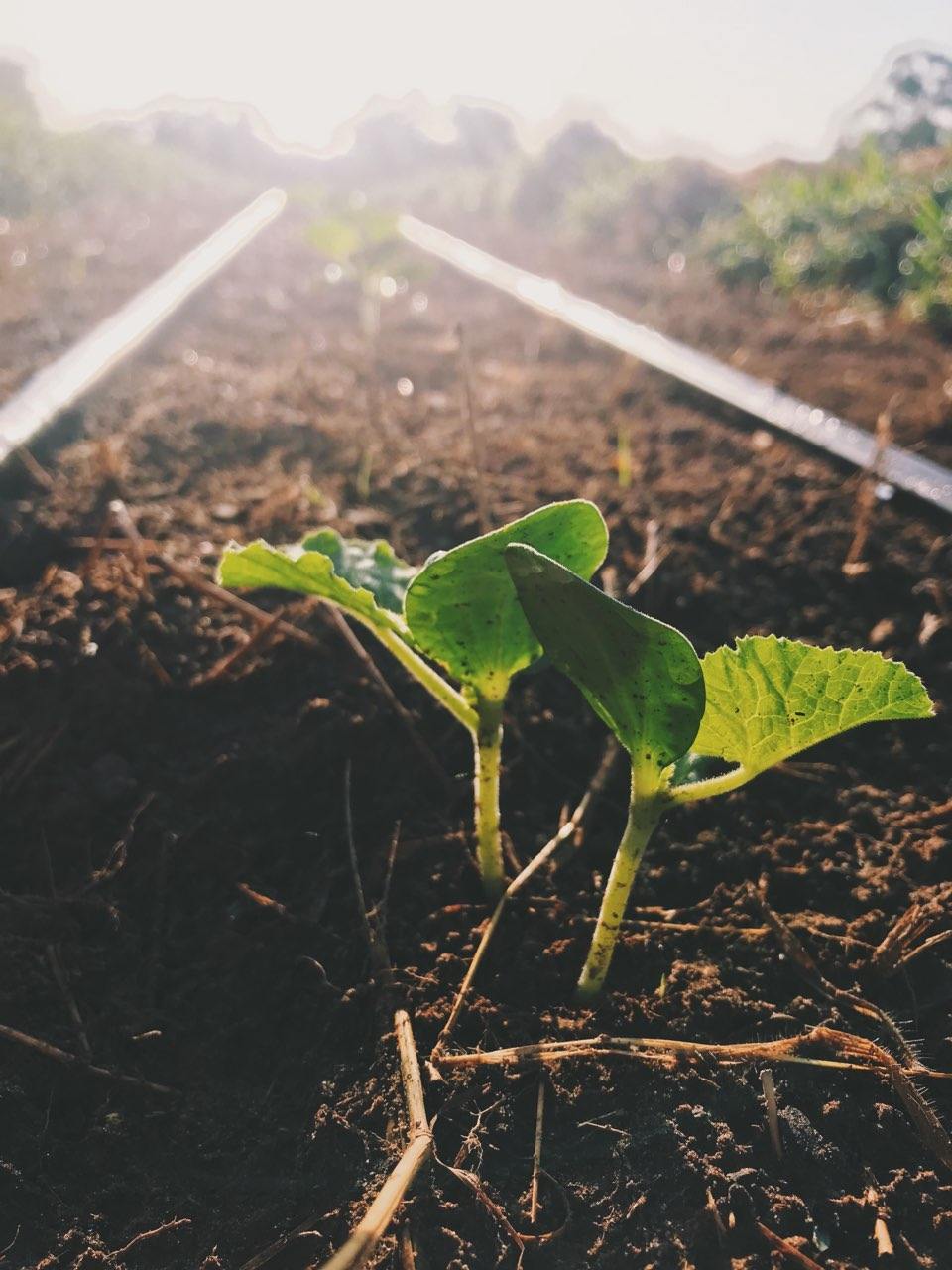
No Unsacred Places: A New Farming Ethic
There are no unsacred places, says Wendell Berry; there are only sacred places and desecrated places.
We’ve been doing this a while now, 10 years under the banner of Red Moon Farm, and 5 years before that from Waco, TX, to the Northeast, and even in India.
In getting to know some of our newest CSA members, we realized we’ve shared very little of our story and background with you in recent years and so it’s high time.
Our Farming Ethic
We’ve been inspired since our early 20s by some of the last century’s great ecological writers (Edward Abbey, Wendell Berry, Aldo Leopold, Derrick Jensen), and influenced heavily by our work in sustainable development and love of back-country adventuring in wild places.
Right out of college, Jessica was fortunate to learn foundational and ecologically restorative farming principles over a 3 year (Justin joined her there in the 3rd year) close relationship with international training center in Waco Texas, World Hunger Relief Institute. And simultaneously, Justin’s 2 years in Kashmir helping build more resilient food systems and economic opportunities for rural farmers helped him cultivate his own principles of care for fragile land and communities recovering from conflict and natural disaster.
This propelled us into what has become our vocation of caring for the land and our community, working every day immersed in the beauty of our land: a 37 acre parcel “desecrated” by former steward’s mismanagement.
“Conservation is getting nowhere because it is incompatible with our Abrahamic concept of land. We abuse land because we regard it as a commodity belonging to us. When we see land as a community to which we belong, we may begin to use it with love and respect.” ― Aldo Leopold
The radically different concepts of land ownership vs. land stewardship is the key. When we see the natural world for what we can take and profit from it, we destroy it.
Resource extraction comes in may forms and on the land we farm here in East Texas, it looked something like this:
- Initial clear cutting of the native forests
- Followed by over grazing cattle for multiple generations
- Followed by a decade of haying without giving back to the soil bank
- Neglect and mismanagement leading to erosion, soil depletion, invasive species, etc.
- All topped off with fossil fuel extraction from the 1940s on.
The land stewards before us didn’t do anything out of the ordinary, and that’s really the problem, isnt’ it? This story is the same across East Texas, North Texas, West Texas, Pennsylvania, and more.
And now here we are. Idealists with a unique agricultural skillset and deep convictions that have propelled us to heal this land over the last 10 years, and to tread lightly on it as a community member, not an owner.
………
I (Jessica) remember being struck by a section in Braiding Sweetgrass by citizen of the Potawatomi Nation, Robin Wall Kimmerer: “She kneels along the trail to inspect a set of moose tracks, saying, “Someone’s already been this way this morning.” “Someone is in my hat,” she says, shaking out a deerfly. Someone, not something.”
As we’ve shifted our view of ourselves and all beings around us as members of a community it has had tangible effects on our work.
None of us, says Wendell Berry, can in a true sense own land. We can only hold it in trust.
This partnership we’ve entered with the land informs our growing practices in every way imaginable. We protect our land for more than just our sake, or the sake of our business’ success. Here how this philosophy manifests itself in our work:
- We don’t mow down flowering plants around the gardens throughout season, as they provide habitat and food to many beautiful native species.
- We provide roosting areas for birds and water buckets for wildlife in drought conditions.
- We live in harmony with predator species like coyotes and bob cats. And rather than shooting deer that eat our lettuce, we use exclusion methods like netted row covers, fences, and intentionally planting delicious forages for the deer outside of the garden.
- We treat our soil like the community of microbial, mycelial, and invertebrate life that it is, knowing that every action has a reaction. So we minimize tillage, we don’t leave soil bare in the beating sun, we compost and mulch, plant cover crops and recycle everything we can into the soil to build a healthy bank of nutrients for that community
“The finest growth that farmland can produce is a careful farmer.” – Wendell Berry poem excerpt. See full poem below
- We get off the tractor, using hand tools, feeling the dirt, experiencing the garden and surrounding conditions with our bodies. Highly mechanized methods and sitting on a tractor all day removes you from experiencing and observing what’s happening all around you.
- We very rarely spray anything for pests, because we rarely need to – and if we do, of course it’s organic approved products, sprayed at the proper times to protect pollinators. We rarely have to spray because we’ve spent years honoring that major pest infestations -or diseases or viruses- in the garden are a result of imbalances in the community. We figure out what got out of balance and work to restore those optimal conditions for microbial life, beneficial insects, and the plants to thrive. Focusing on creating the right conditions has made major improvements in our micro-ecosystem over the decade, as well as given us stronger and healthier plants.
You know that all of these things benefit our garden and therefore benefit you, but leaving a place better than you found it is a good endeavor in and of itself. We hope you feel the same.
We’re grateful we get to do this for you and for the future of our land and our planet. Thank you for supporting your local farmers.
Enjoy one (of many) of our favorite poems by Kentucky farmer, and environmental activist Wendell Berry:
Prayers and Sayings of the Mad Farmer
Don’t worry and fret about the crops. After you have done all you
can for them, let them stand in the weather on their own.
If the crop of any one year was all, a man would have to cut his
throat every time it hailed.
But the real products of any year’s work are the farmer’s mind
and the cropland itself.
If he raises a good crop at the cost of belittling himself and
diminishing the ground, he has gained nothing. He will have to
begin over again the next spring, worse off than before.
Let him receive the season’s increment into his mind. Let him
work it into the soil.
The finest growth that farmland can produce is a careful farmer.
Make the human race a better head. Make the world a better
piece of ground.
Wendell Berry from “Prayers and Sayings of the Mad Farmer” from “The Mad Farmer Poems”
If you’d like to learn more, drop us a line.


